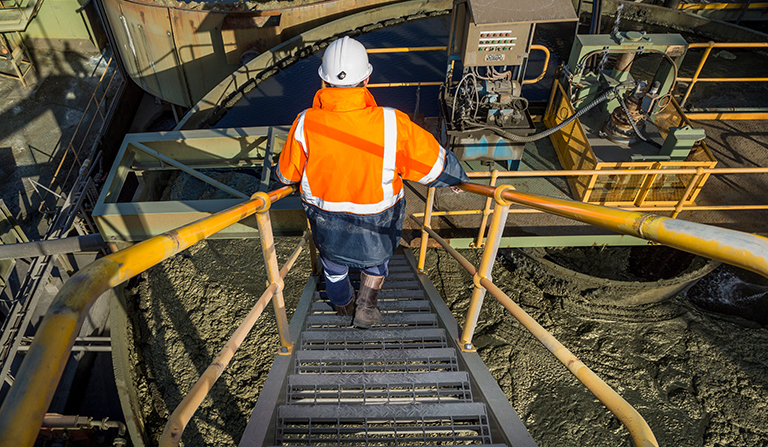When a global mining company needed to fill dozens of leadership roles across three continents simultaneously, they discovered that traditional recruitment approaches weren’t enough for ...
If you want to expand production from 5 to 15 million tonnes per annum then you’ll need a big increase in headcount on site. That’s what this iron ore producer faced in 2024. They knew they had to recruit 189 new technical professionals in just 6 months—a huge number for any mining operation. Especially in an extremely challenging location like West Africa.
With a new concentrator coming online, they developed a strategy to manage high-volume recruitment while building local relationships and HR infrastructure from scratch.
After deciding on a Recruitment Process Outsourcing (RPO) approach, they hit the ground running, hired 25 technical staff in the first month, and are on track to acquire 189 professionals in 6 months.
Here’s how they did it and why their talent acquisition approach leads the way for this type of project.

A project like this in West Africa requires qualified expatriates willing to relocate to a challenging environment, as well as the most skilled local talent available.
The internal HR team knew that they didn’t have the capacity to source, pre-screen, interview, and reference check large volumes of candidates themselves.
Without the right technical people in place, the expansion project would face delays and this could have a costly impact on their production goals.
They realised they needed external help to get this done on time. But they didn’t believe a conventional recruitment agency model would deliver such high-volume hiring in a short timeframe, so they searched for better options.
They approached us for advice, asking us to review their project and make some recommendations.
Our recommendations:
We learned all about their project and identified the following challenges to address:
1. Establish better recruitment processes
They wanted to bring in an ATS (Applicant Tracking System), formal pre-screening, and standardised interview processes.
2. Improve communication between HR and operations
Poor communications slows down the hiring process and creates gaps in aligning HR with on-the-ground project needs.
3. Reduce time-to-hire and costs
High quality candidates at the short-list stage speeds up time-to-hire and reduces costs long term.
The process: RPO model
To overcome these challenges, the HR team chose a Recruitment Process Outsourcing (RPO) model. RPO is a talent acquisition partnership where specialised external mining recruiters manage the end-to-end hiring process.

“When we looked at the unique hiring challenges for the mine, the best option for the client was to set up an RPO project,” explains Rim Harrabi, Lead Search Consultant, RPO – Africa at Globe 24-7.
It allowed them to bring mining-specific expertise directly on-site, and they were confident working with Globe after a two-year working relationship on a single-search basis.
Why was this the best approach? It addressed immediate recruitment needs and foundational HR structures in three areas:
1. Accelerated time-to-hire
The HR team now receives candidate shortlists within 2-5 days. “We are presenting high-quality candidates every time so often an offer is made from the first shortlist,” Rim explains, showing the team’s commitment to speed and accuracy.
“Technically, we understand the project,” says Rim.
“We know what they are looking for technically. We have job briefings with the line managers to understand what they are looking for exactly. And we are on site. We talk to people. We talk to different stakeholders. We talk to employees. So we know exactly what they’re looking for.”
2. Process improvement
It also provides a lower-cost alternative to traditional single-search agency models. The RPO team works closely with the HR team to streamline the entire recruitment process.
We introduced an ATS and a complete new hiring workflow, which included advertising, pre-screening, scoring, and conducting thorough reference checks.
3. Continuous coordination with HR and operations
Our team facilitated clear and ongoing communication across departments, providing critical insights into project needs and cultivating trust with local stakeholders.
The team built relationships with both locals and expatriate managers to ease the cultural transition.
“We are on site,” said Rim. “We work with them on a daily basis, and we are coordinating the whole HR department with other stakeholders.”
Results: 25 hired in first month
The new RPO partnership has brought quick results, demonstrating that this is an effective approach for new mining projects in remote, overseas locations.
Within the first month, the mine successfully placed 25 skilled technical professionals in the project. By the next month, 18 additional candidates were at the offer stage.
Plus, not only was the company happy, but a follow-up candidate survey showed that they enjoyed the hiring process, too. We surveyed 75 candidates and received 25 responses, all of which have been ‘promoters’ (scores of 9 or 10). The candidate NPS score for the RPO team is currently 100.
This is what the candidate NPS survey feedback looked like:
9/10 – “The team is efficient and are putting a lot of attention on follow the recommendations.”
9/10 – “Professionalism, accurate and service.”
8/10 – “Well organized.”
Faster hiring and lower costs
The RPO model cuts down administrative burdens and recruitment expenses, so the business can stay within budget while hiring better quality candidates, faster.
Rapid placement of technical roles helps the project avoid potential delays, which is important to meet their production goals.
Plus, the RPO has brought in new international knowledge and passed it on. The internal HR team has been upskilled on global recruitment practices, further supporting the project’s staffing needs.
Suitable for complex international projects
Using this outsourced approach to recruitment, we could support this mining operation’s unique challenges, including cultural hurdles, safety considerations, and recruitment process gaps, enabling the producer to stay on track for its 189-person target.
Reflecting on the initial success, Rim emphasised the mutual achievements: “We are very proud to be involved in this project and to establish a foundation for future growth in one of the world’s most challenging environments.”
Through this collaboration, this iron ore miner not only met its early recruitment goals but also developed robust HR capabilities, ensuring a smoother path to production expansion in West Africa’s mining sector.





